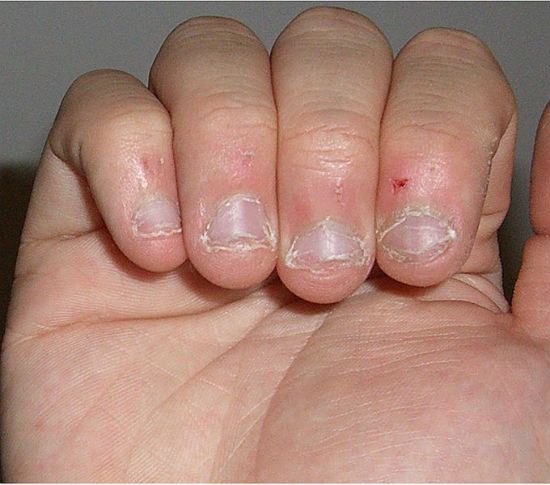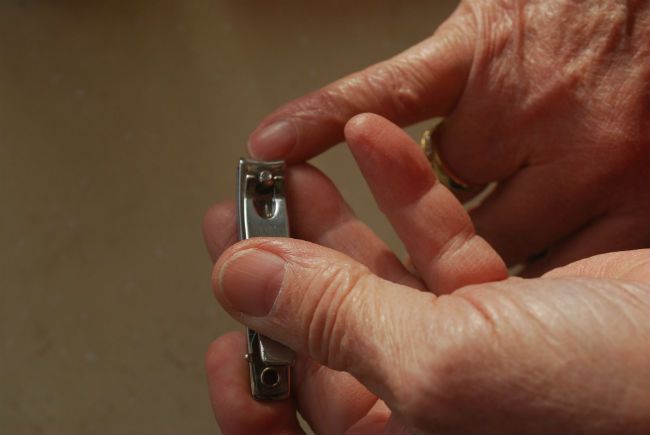One of my worst habits as a child was my constant nail biting.
My parents would scold me to stop every day, but I didn't even realize I was chewing them.
Of course my nails looked terrible, and I was totally embarrassed when my classmates saw me doing it.
Thankfully, I grew out of the nasty habit. But many adults still struggle with it.
Nature of Nurture
Surprisingly, doctors are still split on whether nail biting is a regular old bad habit or a genetic urge.
The condition, called "onychophagia," seems to be linked to stress, anxiety, and boredom.
But parents who bite their nails often have children who do the same, even if the habit stops before their child is born.
Some doctors say biting nails is a form of "excessive grooming," like picking at skin or pulling out hair, and compare the condition to Obsessive Compulsive Disorder.
Whatever is behind the biting, it's surprisingly common. Almost half of teenagers in one survey admitted to biting their nails.
We can also say for sure that the condition is bad for your health.
Side Effects
While we tend to think of nail biting as harmless and annoying, it has a few long-term effects.
Obviously, biting damages your nails and your cuticles, but obsessive biting also harms your teeth.
And sticking unwashed fingers in your mouth floods your body with germs that can make you seriously ill.
Quitting nail biting can be as hard as quitting smoking, but doctors have proven tips that will help you succeed.
Train Your Brain
Most specialists agree that people who chew their nails enjoy doing it, even if they know it's wrong.
So to break the habit, you need to re-wire your brain and convince yourself that nail biting is no fun.
There are a few ways to do this:
- Cut Your Nails Short: Chewing on your nails is less satisfying when they're cut regularly, so stay on top of your grooming habits.
- Make Them Taste Bad: Pet owners will often spray their furniture with lemon juice or other bitter tastes to keep pets from chewing on them. The idea works just as well on humans.
- Track Your Biting: Take note of when and where you bite your nails, and how you're feeling. Then, work to avoid those situations or feelings.
When All Else Fails
In some particularly bad cases, patients have put band-aids and gloves on their hands to prevent themselves from biting.
If you're tried to quit repeatedly, you may want to consult a therapist about the habit.
But don't beat yourself up if the habit sticks: one study found that nail biters tend to be perfectionists, so criticizing yourself might make things worse.



